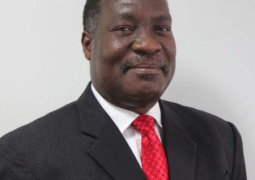The 49th ordinary session of the Banjul-based African Commission on Human and Peoples’ Rights (ACHPR), an organ of the Africa Union responsible for the promotion and protection of human rights in the continent, yesterday opened in Banjul with a pronouncement by the Gambia government that it is ready and willing to adopt best practices to improve on its human rights record and to protect the human rights of the people.
The two-week session, underway at the Kairaba Beach Hotel, brought together more than 200 delegates from across the African continent, including NGOs, observers, human rights defenders and advocates, as well as journalists.
The high-profile meeting is hosted by the Gambia Government in collaboration with ACHPR secretariat in Banjul. It coincides with commemoration of the 30th anniversary of the coming into force of the African Charter on Human and Peoples’ Rights.
The session is expected to examine the human rights situation in the African continent, and top on the agenda are the post-election crisis in Ivory Coast, the political unrest in Libya and North Africa and the issue of elections in Africa.
Isatou Alwai Graham, Curator of Interstate Estate at the Ministry of Justice and Attorney General Chambers, represented Edward Anthony Gomez the Attorney General and Minister of Justice at the opening session.
Mrs Graham delivered a statement on behalf of the Justice Minister, who officially opened the two-week session.
The Gambian justice minister in his statement declared, among other things, that "The Gambia is ready and willing to learn and adopt best practices available to improve on our human rights record, and to best protect the human rights of people. We are and will continue to be committed to this cause."
Minister Gomez earlier told the meeting that Gambia government re-affirms its commitment to the work of the commission, and continues to welcome the hosting of the commission in Banjul.
He went to describe as alarming the recurrence of electoral conflicts in some African countries, citing the recent unrest in Ivory Coast as an example, which has claimed thousands of lives and left two million people displaced.
“The resumption of civil war in Libya and killing of innocent citizens demands urgent action. The impact of these civil unrest and full blown war is devastating. Libya has disintegrated and is falling behind, moving into subsequent economic collapse as a consequence of the war,” he added.
“This underscored the need for a holistic approach to the sub regional and regional dimension of these conflicts by broadening the scope of human rights to incorporate the fundamental rights and protection of marginalized groups,” he continued.
Minister Gomez, in his statement, referred to the Gambia’s efforts “to uphold its unrivaled religious tolerance”, adding that “ the government of The Gambia respects this right”.
“This peaceful co-existence of all religious denominations and faiths without any persecution by government is a clear testimony,” he declared.
Gomez told delegates and human rights defenders that The Gambia, as a developing nation, is ready to learn from its difficulties and challenges in promoting human rights, “but we are also unwavering in our desire and commitment to keep the peace and stability we are known to have and enjoy.”
Commissioner Riene Alapini – Gansou, chairperson of the African Commission, told the gathering that the continent has witnessed massive violations of human rights over the past six months.
In the case of Libya, she noted, there is continued violation of human rights, especially the right to life, which is of serious concern to the commission.
“This year was recognized as an election year, as many African countries went to polls or on the verge of going to the polls. The African Commission since February was told about many massive violations of human rights and committing of crimes against humanity in many countries where elections were held,” she added.
In her view, defenseless and unarmed civilians were victims of brutality and killings, following contested elections.
Also addressing the session was the Gambian-born AU Commissioner for Political Affairs at the AU Commission, Mrs. Julia Dolly Joiner, who said the entire African continent and the world’s eyes are fixed on North Africa and the Middle East with demands for change coming from within, with people calling for greater civil liberties, economic opportunities and a stake in the governance of their societies.
The representative of the NGOs steering committee, who also doubles as the Executive Director of the Banjul-based African Center for Democracy and Human Rights Studies (ACDHRS), Hannah Forster, stated that the forum acknowledged that despite the persistence, as a result of the human rights and democracy situation on the continent leading to violence, insecurity and conflict, real and positive developments have been registered in a good number of Africa countries.
Other speakers at the session included the Vice President of the African Court on Human and Peoples’ Rights, Hon. Justice A.B. Akuffo, and the Senegalese minister of human rights, Kumba Gaye.


